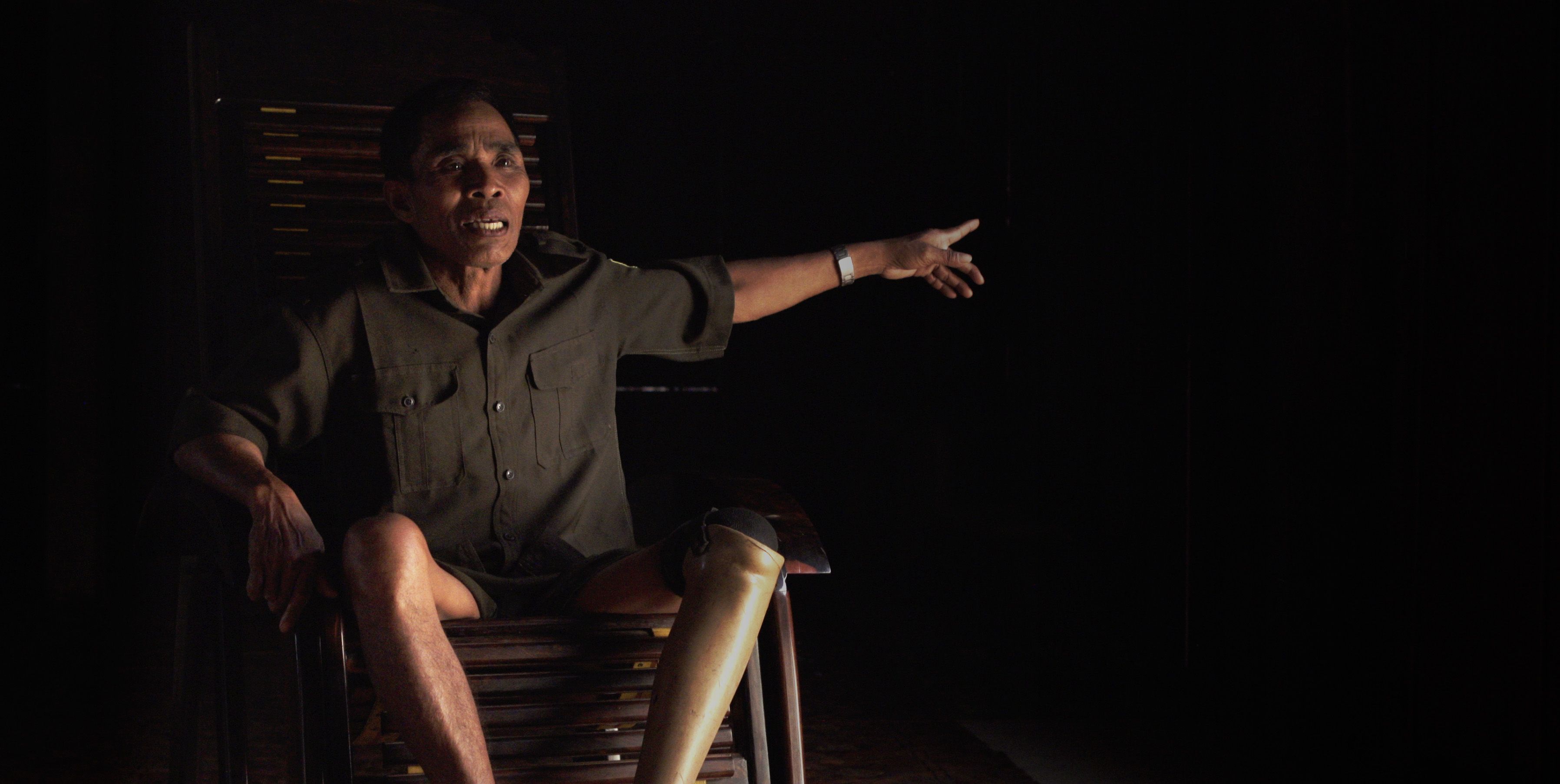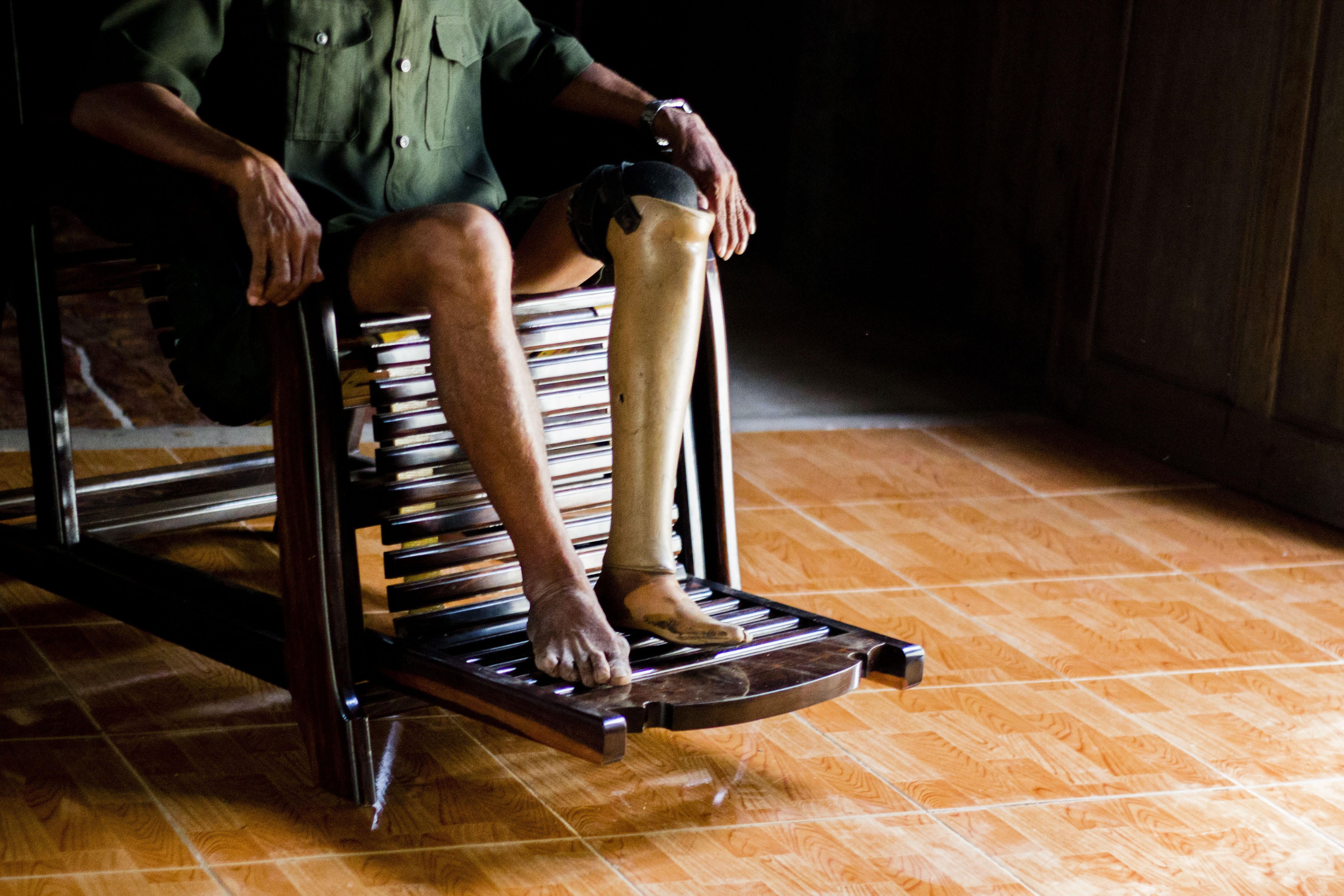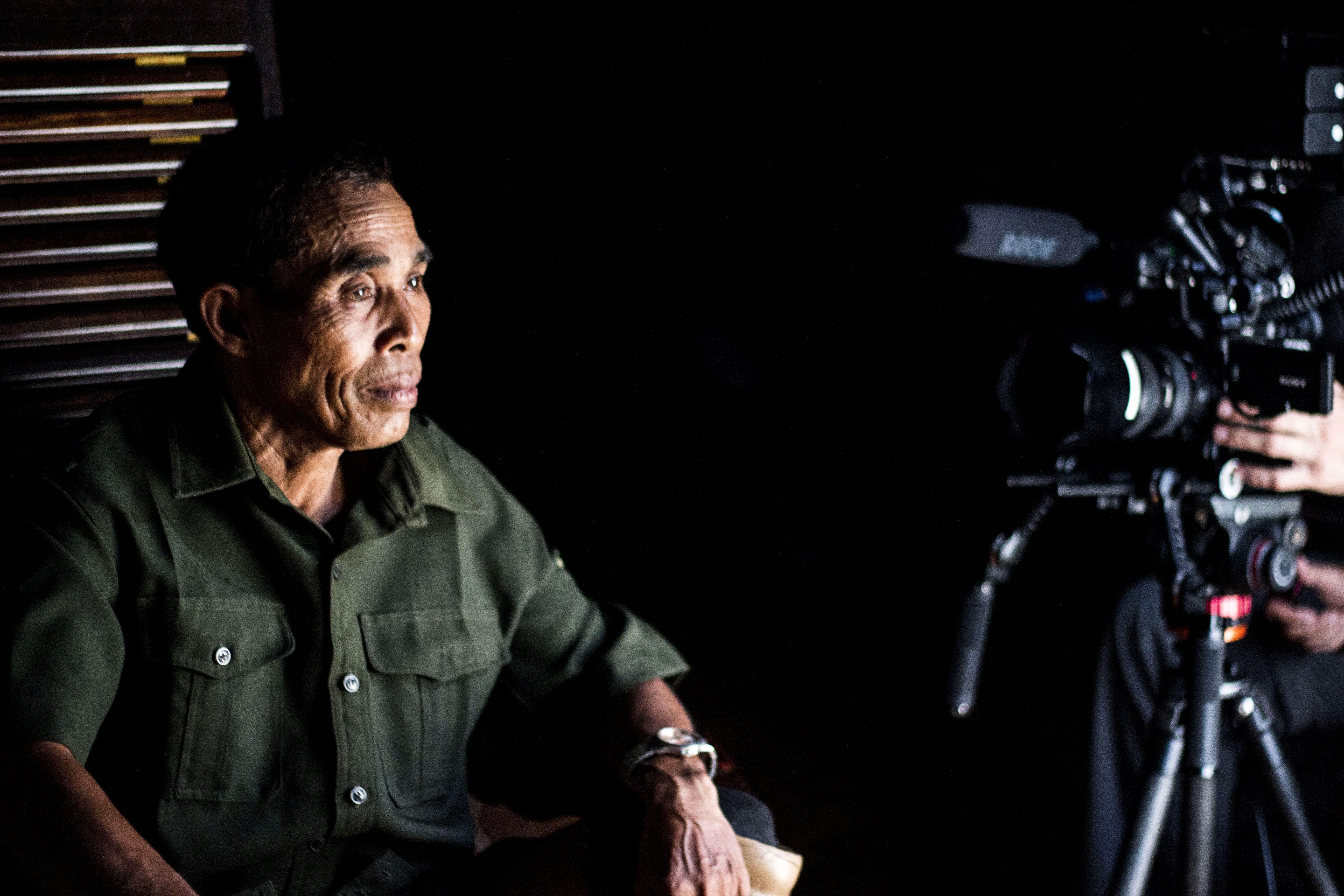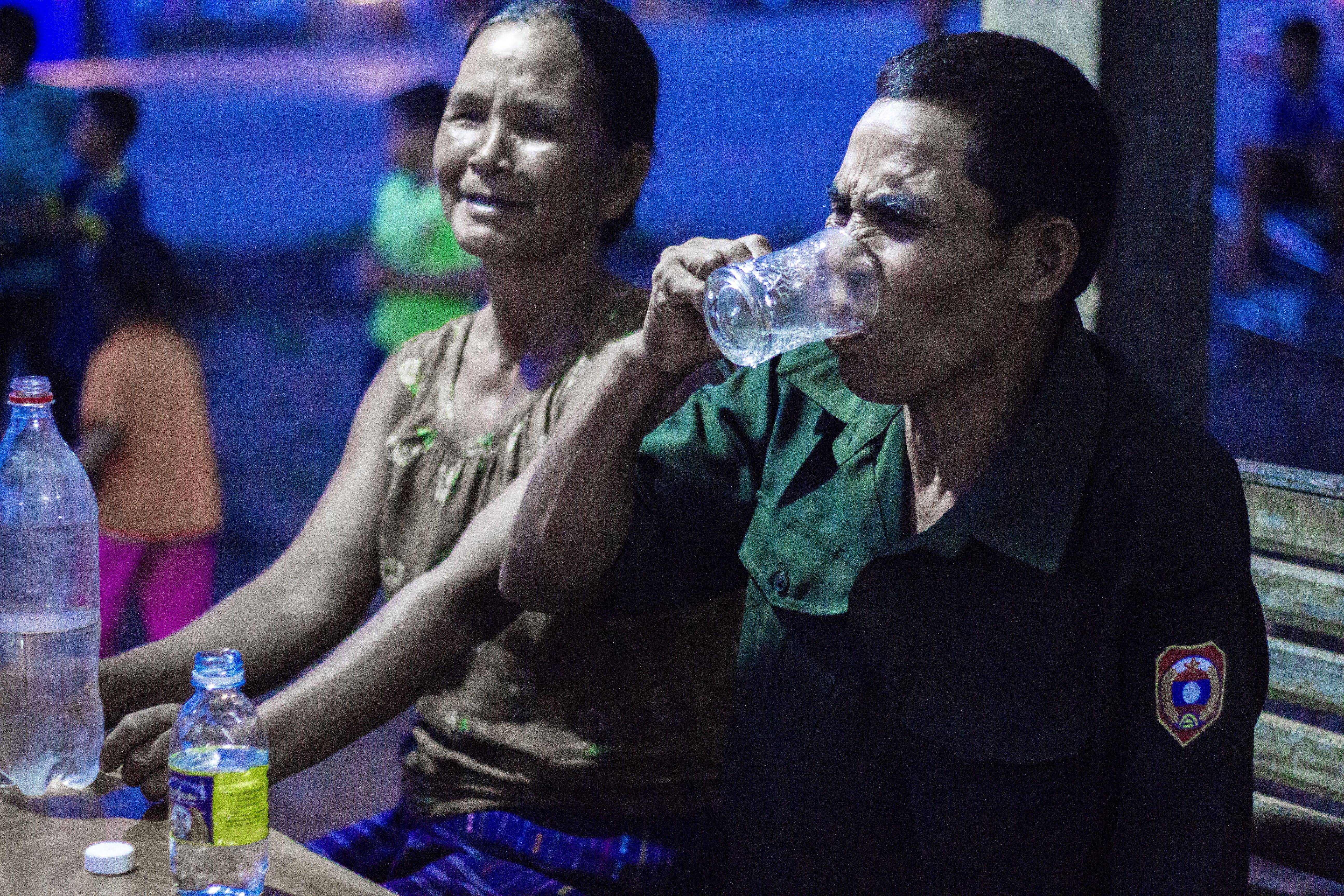After a long day of filming with UXO Lao, Laos’ domestic bomb-clearing force, we were informed there was an old man in a nearby village who wanted to share his story with us. Sunburnt, sweaty, and hungry, we packed up our gear and drove to this man’s home. We pulled the truck up to an intersection full of piglets, roosters, children playing, and motorbikes zooming past. The old man, Mr. Vounta, emerged from his nice, but dark home and revealed his plastic left leg.
Re-energized with the prospect of this untold story, we hastily set him up in his living room rocking chair, using one open window as our lighting.
Ka, my Lao-co-producer and interviewer, and I went over some impromptu questions for Vounta. But from the moment the camera started rolling, emotions and years of silence poured out of Vounta. When the bombs began to drop, he was a subsistence farmer working in his rice paddy, just like the vast majority of Lao people. He did not know why the bombs were dropping, but only that they did not cease. “They were like butterflies, it was like they never slept,” he told us about the American planes. He didn’t understand how they could drop bombs so constantly, for so long—how they had the endurance. Like the rest of his village, they adapted to the bombings. They farmed at night and hid during the day.
One day, between bombing campaigns, he was farming in his nearly destroyed rice paddy and struck a UXO [unexploded ordnance]. His fellow farmer lost his life to this UXO (as many did during this time), and Vounta lost his left leg. To me, it seemed like a good thing Vounta survived the explosion. But, like many Laotians, his quality of life severely decreased because he could no longer earn his livelihood, which was farming—farming the same plot of land his father had farmed, and many generations before him. He could no longer supply for his 15 children. His children had to stop going to school and work on the farm, creating a cycle of poverty in Laos. Today, many of Vounta’s children still work on the family farm, which is still completely contaminated with the same UXO that nearly killed Vounta forty years ago.
After the interview was complete and Vounta was emotionally exhausted, I asked if I could say one more thing to him. I said, “Thank you for the interview. I am from America and I am sorry for what my country did to you.” He smiled and said a popular Laotian phrase that means, “No problem. I wish you a long life of health and happiness.”
Ka and I sat on the porch with Mr. and Mrs. Vounta as they made us share a bottle of Lao Lao with them, which is essentially Lao moonshine. He revealed that he had never told this story to a foreigner, let alone an American. I hope he found some closure in it.
The full interview with Vounta and many others will be in my documentary "This Little Land of Mines," for which we are still fundraising to complete the second round of production.







